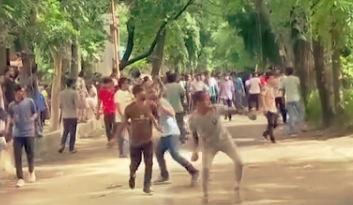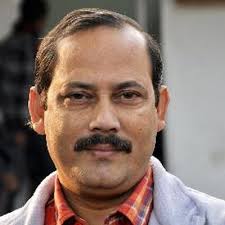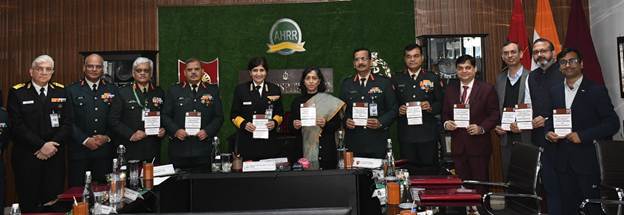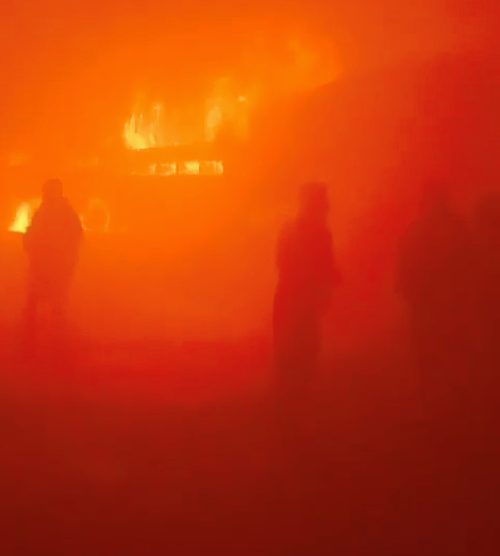
File photo of the mob violence in Bangladesh in July-August 2024
On September 13, 2024, thousands of agitators blocked the Shahbag intersection of Dhaka to raise their demand to take swift and concrete actions to stop the continued attacks on minorities and their sacred places.
Representatives from Sanatani Adikhar Andolan, a coalition of Hindu organizations including the Hindu Jagaran Mancha, the National Hindu Forum, and the Bangladesh National Hindu Grand Alliance, criticized the government in Dhaka for failing to address their demands.
These organizations submitted an eight-point charter of demands including a fair probe into every incident of attacks on Hindu families and properties to punish the perpetrators under the law. Moreover, the compensation for the damage to the properties and lives of the minorities, and their rehabilitation, the formation of a Minority Commission, a separate ministry for the minority communities (which constitutes hardly 10% population), and the reservation of seats in the National Assembly, were also on the list of demands. They made it clear that they are legitimate citizens of Bangladesh and must not be termed as outsiders or agents of India. They asserted they will never leave Bangladesh as it’s their native place and demanded that the authorities must therefore ensure security for them.
Nearly 850 people were killed and over 30,000 sustained injuries in the turmoil that engulfed Bangladesh since the middle of July 2024. Unconfirmed reports also suggest that no less than one thousand attacks were also materialized against the Hindus and other minorities in Bangladesh after the Sheikh Hasina regime fell.
India’s largest socio-cultural organization Rashtriya Swayamsevak Sangh (RSS) also came out with a media statement expressing serious concern over the incidents of violence against Hindus, Buddhists and other minority communities there.
RSS Sarkaryavah Dattatreya Hosabale commented that cruelty like targeted killings, looting, arson and heinous crimes against women belonging to Hindus and other minorities, and attacks on temples in Bangladesh were “intolerable”. Hosabale expected that the interim government would take strict action to stop such incidents immediately. Requesting all political parties in India to stand in solidarity with the persecuted communities of Bangladesh, Hosabale urged New Delhi to make every effort to ensure the safety of Hindus and Buddhists in the Muslim-majority nation.
Professor Yunus reiterated on different occasions that Dhaka will always prefer to maintain healthy relations with a forward-looking neighbour like India. He expected that the relationship should be guided by fairness and equality.
Earlier, during a televised address to the nation on September 11, the interim government head Professor Muhammad Yunus reiterated the primary task of his government to ensure justice and accountability for the killings which took place in July and August 2024. He remembered the sacrifice of hundreds of students, journalists and civilians from all walks of life to end the “15-year dictatorship of fascist Awami League” chairperson Sheikh Hasina, who led a “brutal genocide right up until her downfall on August 5, 2024”. He talked about “thousands of others”, who were injured, crippled for life. He said many lost their eyesight as Hasina’s enforcers targeted their eyes when firing rubber bullets. Yunus stated that the government will ensure their medical treatments.
Mentionable is that the interim government was sworn in under the leadership of Nobel laureate Prof Yunus, principally to conduct a credible national election within 90 days. But the ground reality may compel the caretaker government to go for a massive reform in various institutions and agencies before holding the polls in the country of 170 million people.
The interim government recently announced the formation of six Commissions to bring reforms in various major segments including the police-public administrations, anti-corruption agency, judiciary, electoral system and even the Constitution, which was adopted after a secular Bangladesh was born out of the Islamic Republic of Pakistan in 1971.
Many Bangladeshi nationals that only after due reforms, precisely in the electoral exercises, free, fair and participatory elections are possible in the country.
*Senior journalist






